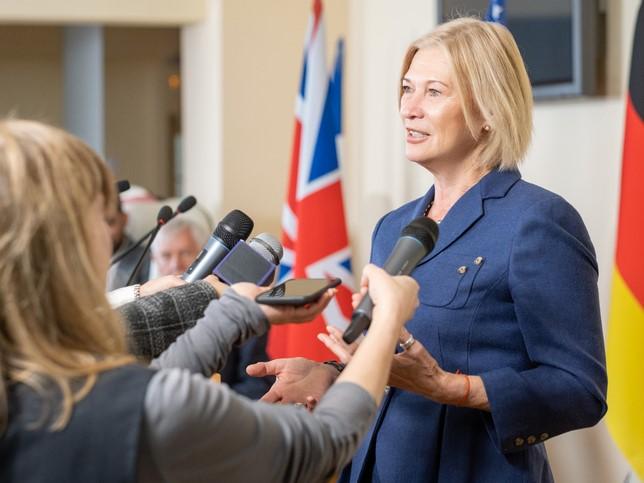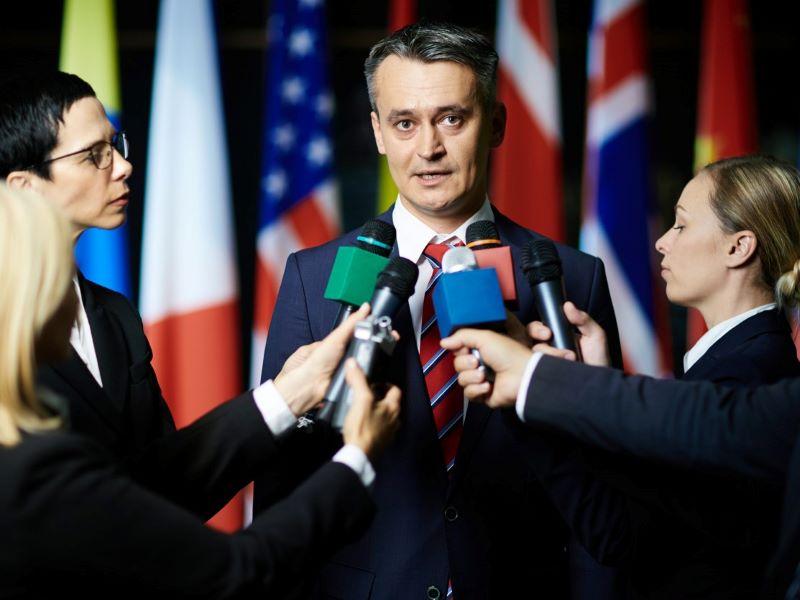In the midst of government turmoil in October, I was invited as a witness to provide oral evidence to the House of Lords’ Communications and Digital Select Committee, as part of an inquiry into the future of the UK’s Creative Industries. The subject of the session was on the impact of technology on business models in the creative industries and intellectual property licensing – areas in which I specialise.
It was a valuable experience, and one that I learned from. Here I have highlighted some key observations and takeaways that I hope will be useful to colleagues across higher education if they find themselves asked to speak in front of a select committee as a witness.
- Writing and presenting reports for government: five dos and five don’ts
- Five steps for engaging policymakers with research
- How to improve the public understanding of evidence
Communication style is key
As I am sure is the case with many colleagues across academia, I am used to dialogue-style communication when it comes to presenting and discussing my research. I found the strict question-and-answer format of the session strange at first. This meant my answers to some questions may have been too detailed and more complex than was expected of me. For example, I was keen to point out the changes imposed on the creative industries by the last major leap in technology (namely the transformation of media into digital media), to contrast how new and emerging technologies are likely to impact the creative industries today (primarily the impact of AI on the cost of creating content). In a way that academics often are, I was quite satisfied with my analysis and answer. However, it was referred to – politely – as an “erudite” response and could I please tell the committee my opinion instead.
Communicating information in relatable terms is important and often the best way to elicit a response. For instance, at one point I made a comparison between non-fungible tokens (NFTs) and the Beanie Babies collectable toys, in terms of the uncertainty of their value, which produced a laugh out of the committee, and I believe was effective in bringing their attention to the argument I was making.
I had not appreciated the inquiry’s focus was so forward-looking – they were interested in understanding what I thought would happen rather than my interpretation of what had already happened. Given that academia is typically backwards-analysing rather than forwards-predicting, it was slightly out of my comfort zone. If I were to do this again, I would try to focus on articulating my opinion to the committee, rather than on providing too much analysis.
I was very glad that I had read the transcript from the previous week’s meeting because I could pick up on arguments that were already made and avoid repeating things. The committee had also formulated some of their questions based on the previous week, and reading the transcript meant my thoughts on those topics were fairly fresh.
To deal with presentation anxiety, I found it helpful to jot down a few bullet points on a piece of paper that I could refer to for keeping me on track. Digital devices are not allowed in the room. While this is by no means an ultimate solution to getting rid of anxiety, it did give me a sense of reassurance.
Engaging with policymakers is a complex process
I found some of the questions asked during the session were constructed so as to produce a specific answer from witnesses, perhaps to reinforce existing opinions held by a committee member about certain policies. While it seems obvious in retrospect, this is definitely not something I anticipated. I was disappointed to see a question on intellectual property – my main area of expertise – directed to a fellow, non-IP-expert witness, rather than me. Given the question-answer format, there was no means for me to comment as I was not called. It was a reminder that policy is also politics and engaging with and influencing policymakers can be a slow process. Building rapport takes time.
Having said that, it is also worth remembering that some inquiries cover a very broad subject area, where it is difficult to elicit a full and balanced response. A great piece of advice I received before my evidence session was to focus on the specific points I wanted to make, ie, those that I am interested in advancing. This is best done at the beginning of the session, when the questions are more general (and witnesses have typically seen them in advance). It becomes harder to do if the session moves on to more specific topics and away from your key points.
Logistics should not be underestimated
Having to pick my way through crowds of tourists to get to the Houses of Parliament on the day nearly made me late, which certainly did not help with my pre-presentation anxiety. I felt glad that I had been in the building before, when working as a civil servant, as parliament and its meeting rooms can be quite intimidating. Anyone who has been invited as a witness should leave plenty of time to get to the venue, as there is no flexibility in timing on the side of select committees.
Overall, I enjoyed being a witness and am glad to have done it. A small added bonus was that my family and friends were delighted to see me on Parliament TV. The committee seemed genuinely interested in what I was saying, and the experience provided valuable lessons for future engagement. It has helped me build up confidence to engage with higher-stakes inquiries when the opportunity arises.
Nicola Searle is a senior lecturer at the Institute for Creative and Cultural Entrepreneurship (ICCE), Goldsmiths, University of London and a member of the Universities Policy Engagement Network (UPEN).
If you found this interesting and want advice and insight from academics and university staff delivered direct to your inbox each week, sign up for the THE Campus newsletter.




comment1
(No subject)